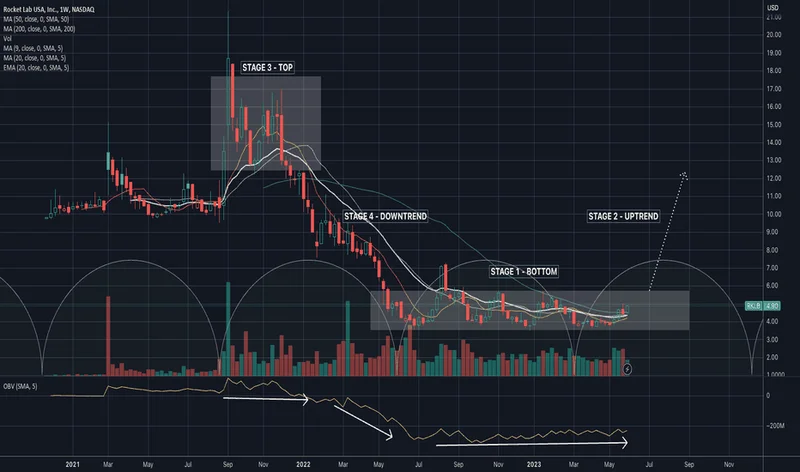The market is a funny thing. It’s a chaotic, often short-sighted engine that tries to slap a price tag on the future, minute by minute. We saw it again recently with Rocket Lab (RKLB). The stock jumps 5%, then 8%, on news of massive multi-launch deals with Japanese satellite firms like Synspective and iQPS. The headlines scream about volatility, analysts debate price targets, and investors ask, Why Is Rocket Lab (RKLB) Stock Soaring Today?
And I have to be honest, I think that’s entirely the wrong question.
Focusing on the day-to-day churn of Rocket Lab’s stock is like standing in front of the construction site for the Hoover Dam and complaining about the price of rivets. You’re missing the monumental scale of what’s actually being built. We’re not just watching a company sign contracts; we’re witnessing the assembly of the logistical backbone for the next great economic frontier. This isn't a stock story. It's an infrastructure story.
For decades, getting to space was a bespoke, monumental, and wildly expensive affair. It was like commissioning a grand sailing vessel for a single voyage in the 17th century—a process filled with custom engineering, immense risk, and a timeline measured in years, if not decades. If you wanted to put a satellite into orbit, you were at the mercy of a few national space agencies or aerospace giants with launch schedules that were both unforgiving and sparse.
Then came Rocket Lab’s Electron rocket. And in the last few weeks, the rhythm has changed. First, a deal for 10 launches with Synspective, their largest single order ever. Then, just days later, another multi-launch agreement with iQPS, locking in three more dedicated missions. When I saw the news of that second major Japanese deal in such a short window, I honestly just sat back in my chair, speechless. This isn't a fluke; it's a pattern. It’s the steady, rhythmic drumbeat of reliability.
What we’re seeing is the creation of something profoundly new: standardized, frequent, and relatively affordable access to low-Earth orbit. This is the "shipping container" moment for the space industry. Before the standardized container, global trade was a chaotic mess of barrels, sacks, and crates of all sizes. It was inefficient and costly. The container revolutionized everything by creating a simple, repeatable unit of transport. Rocket Lab is doing the same for small satellites. They’ve turned the audacious act of leaving the planet into a predictable service you can book.

This shift is so much more important than a quarterly earnings report. It changes the fundamental calculus for an entire generation of innovators. What happens to Earth imaging, global internet, climate monitoring, and in-space manufacturing when the barrier to entry isn't a billion-dollar bespoke rocket, but a predictable launch slot you can reserve online? What new ideas become possible when a startup in a garage can realistically plan to have its own constellation of satellites in orbit within a few years?
Of course, the market’s anxiety is understandable. Rocket Lab isn’t profitable. The stock is volatile, with short interest hovering over 14%. The company just raised nearly $400 million in an equity offering because building the future is an astonishingly expensive business. These are the facts that give traditional investors heartburn, and they’re not wrong. Building a new paradigm is a high-wire act without a net.
But this is where we have to zoom out. The company is burning cash to develop its next-generation Neutron rocket—in simpler terms, they’re spending a fortune now to build the interstellar superhighway after proving the concept with the local roads of Electron. This is the kind of audacious, capital-intensive, world-building bet that Wall Street gets nervous about but that innovation has always demanded. It’s the belief that if you build the infrastructure that unlocks an entire economy, the value will eventually follow in ways we can’t even predict yet. Amazon lost money for years while it built the plumbing of e-commerce. Was anyone who understood the vision really worried?
This is the kind of breakthrough that reminds me why I got into this field in the first place. We’re moving from an era of one-off space missions to one of persistent space industry. And with that power comes a profound responsibility. As we make orbit more accessible, we also have to become better stewards of it, managing debris and ensuring this frontier remains open and sustainable for generations to come. The challenge is no longer just getting there; it’s about learning how to live and work there responsibly.
The debate over Rocket Lab’s valuation today almost feels quaint. Analysts are trying to build discounted cash flow models for a business that is, in essence, selling tickets to a world that doesn’t fully exist yet. They are trying to map a country that is still being discovered. The real story isn't in the stock’s 52-week high or its price-to-sales ratio. It's in the cadence of those launches from a quiet peninsula in New Zealand, each one another brick in the foundation of a bustling economy above the clouds.
Let’s be clear. I have no idea where Rocket Lab’s stock will be next month or next year. But I’m convinced that in a decade, we’ll look back at this period not as a moment of stock market speculation, but as the critical inflection point where humanity stopped just visiting space and started building its first off-world industrial park. The real question isn’t whether you should buy the stock. It’s whether you recognize that you’re watching the future’s infrastructure being poured, right before your very eyes.